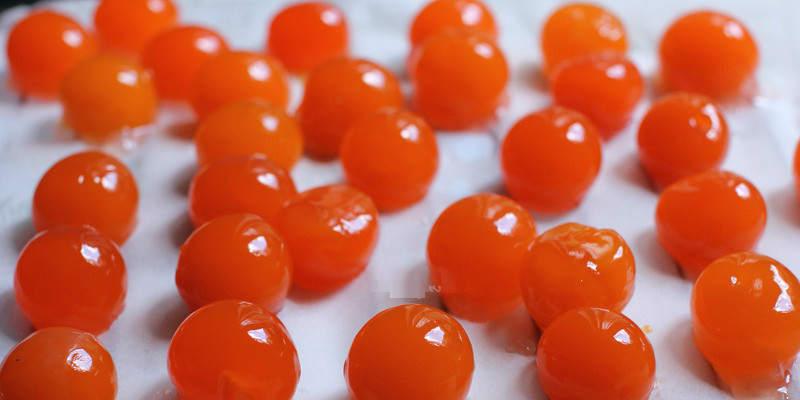Processing Salted Egg Yolks
To begin, carefully separate the eggshells and gently remove the egg whites, keeping the yolks intact. Rinse the yolks under running water to ensure all traces of egg white are gone. Be gentle and use a low water pressure to avoid breaking the delicate yolks.
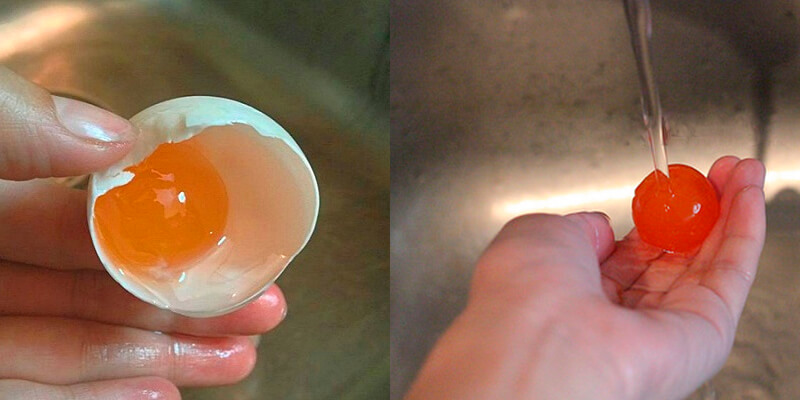
Soak the eggs in Mai Que Lo wine or vodka for 5 minutes. This step helps eliminate any remaining fishy odor and gives the eggs a beautiful color and a chewy texture when cooked.
Discard the alcohol and place the eggs on a sheet of aluminum foil. Brush the eggs with oil to give them a glossy finish once cooked.
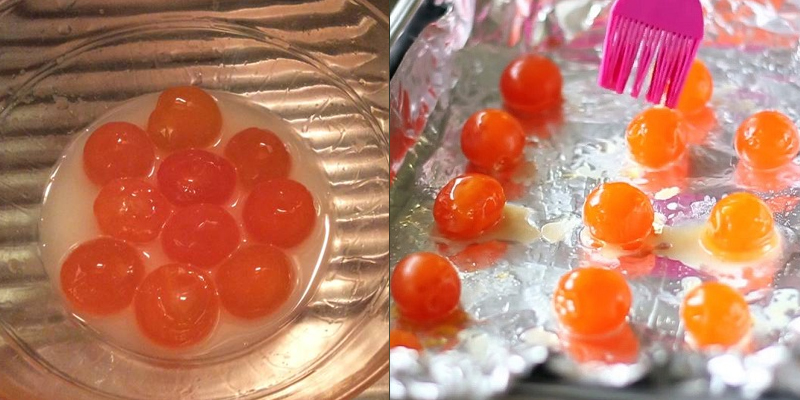
Finally, bake the eggs in the oven for about 7-10 minutes at 125 degrees Celsius. If you don’t have an oven, you can also steam them for 15 minutes. Just make sure to cover the lid with a clean cloth to prevent water droplets from falling onto the eggs.
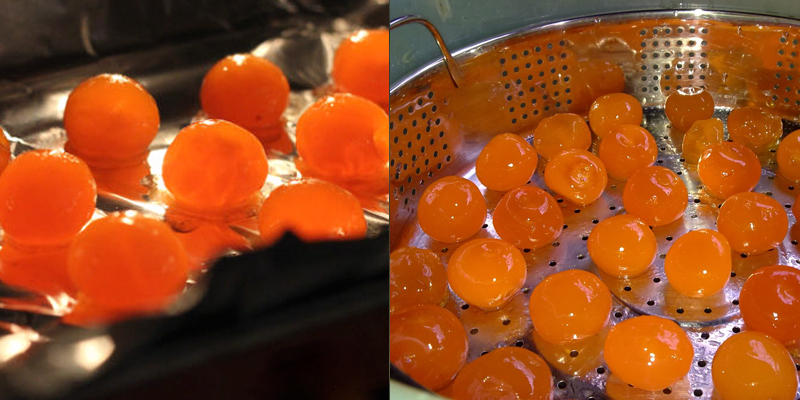
Storing Salted Eggs
Once cooled, salted eggs can be stored in the refrigerator for 2-3 weeks if you plan on using them regularly.
If you won’t be using them within this time frame, it’s best to seal them in an airtight bag or container and freeze them. They can be stored in the freezer for up to 2-3 months.
Do not store salted eggs at room temperature, as the heat can cause the eggs to become oily on the outside while drying out the inside. Under these conditions, they will only last for 1-2 days.
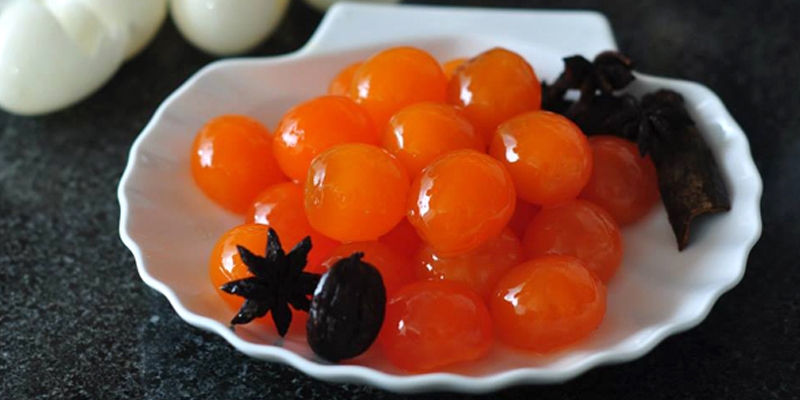
Making Salted Eggs at Home
There are two quick and easy methods for making salted eggs at home.
Method 1:
Step 1: Boil 1.5 liters of water with 300g of salt. Clean the eggs, dry them, and soak them in alcohol for an hour.
Step 2: Place the eggs in a glass jar and add the salted water along with 80ml of alcohol. Seal the jar tightly and leave it in a sunny spot for 4-5 weeks before using.
For more information: how to make them at home
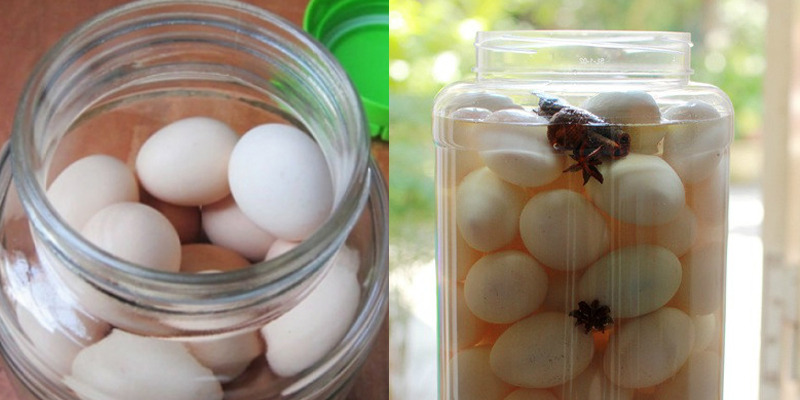
Method 2:
Step 1: Clean and dry the eggs, then roll them in alcohol and salt, making sure the salt coats the eggs evenly.
Step 2: Place the eggs in 2-3 layers of plastic bags, tie them securely, and leave them in a sunny spot for 4-5 weeks before using.

Notes
Store-bought salted eggs often have a strong fishy odor, so it’s important to remove this smell before using them.
When making salted eggs at home, adding ginger, licorice, and fennel can enhance their aroma.
While some dishes may call for using the entire salted egg (both yolk and white), the egg whites tend to be very salty and have lower nutritional value. Therefore, it’s best to use mostly yolks.
For baked goods, such as mooncakes, only use the egg yolks.
Despite their salty flavor, salted eggs add a unique touch to both savory and sweet dishes. However, it’s important to know how to handle and store them properly to avoid any unpleasant fishy odors ruining your creations.


























